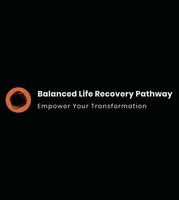Why Support Groups Matter in Recovery
- Gary Clouse

- Oct 7
- 4 min read
Recovery is a journey. It is not a straight path, but a winding road filled with challenges and triumphs. Along this road, we need more than just willpower. We need connection, understanding, and support. This is where group recovery assistance plays a vital role. It offers a safe space where healing can begin and grow. Together, we find strength in shared stories and collective hope.
Recovery is not something we do alone. It is a shared experience that calls for community. When we come together, we create a powerful force that lifts us up. We remind each other that we are not alone in our struggles. This connection is the heart of healing.

The Power of Group Recovery Assistance
Group recovery assistance is more than just a gathering. It is a lifeline. When we join a group, we open ourselves to empathy and encouragement. We listen and we share. This exchange builds trust and breaks down isolation.
In a group, every voice matters. We learn from each other’s experiences. We celebrate small victories and offer comfort during setbacks. This shared journey creates a sense of belonging that is essential for healing.
Here are some ways group recovery assistance helps us:
Provides emotional support: Knowing others understand our pain helps us feel less alone.
Offers practical advice: Members share coping strategies that have worked for them.
Builds accountability: Regular meetings encourage us to stay committed to recovery.
Fosters hope: Seeing others succeed inspires us to keep going.
This support is especially important for those healing from addiction and trauma. The road can be tough, but together, we make it easier.

How Group Recovery Assistance Creates a Safe Space
Safety is the foundation of healing. Group recovery assistance creates a space where we can be honest without fear of judgment. This safety allows us to open up about our struggles and fears.
In this space, confidentiality is key. What we share stays within the group. This trust encourages us to speak freely and listen deeply. We learn that vulnerability is a strength, not a weakness.
The group also offers structure. Regular meetings provide routine and stability. This consistency helps us build new habits and replace old, harmful patterns.
To create a safe space, groups often follow these guidelines:
Respect confidentiality: What is shared in the group stays in the group.
Listen without interrupting: Everyone deserves to be heard.
Avoid giving unsolicited advice: Support is about understanding, not fixing.
Encourage participation: Everyone’s experience is valuable.
By following these principles, group recovery assistance becomes a nurturing environment where healing can flourish.
What is a support group meeting?
A support group meeting is a gathering of individuals who share similar challenges and goals. These meetings provide a platform to share experiences, offer encouragement, and learn from one another.
Typically, a support group meeting is led by a facilitator who guides the discussion and ensures the group stays respectful and focused. The format can vary but often includes:
Sharing personal stories
Discussing coping strategies
Setting recovery goals
Offering mutual encouragement
These meetings are usually held weekly or biweekly and can take place in person or online. The key is consistency and commitment.
Joining a support group meeting helps us feel connected. It reminds us that recovery is a shared journey. We are not alone, and together, we can overcome.

Practical Tips for Making the Most of Group Recovery Assistance
Being part of a group is a gift, but it also requires effort. Here are some practical tips to help us get the most from group recovery assistance:
Be open and honest: Share your feelings and experiences. Authenticity builds trust.
Listen actively: Pay attention to others’ stories. You might find new insights.
Attend regularly: Consistency strengthens your commitment and connection.
Respect others: Support is a two-way street. Be kind and non-judgmental.
Set personal goals: Use the group to help you stay focused on your recovery.
Ask for help: Don’t hesitate to reach out when you need support.
Remember, recovery is a process. It takes time and patience. Group recovery assistance is a tool that can guide us through this process with compassion and strength.
Embracing the Journey Together
Healing from addiction and trauma is a path we walk together. Group recovery assistance offers a beacon of hope and a hand to hold. It reminds us that we are stronger when we unite.
At Balanced Life Recovery Co, we believe in the power of community. We are here to guide you toward balance and strength through shared experiences and a spiritual path. Together, we can prevent others from suffering as we once did.
Let us embrace this journey with open hearts. Let us find comfort in connection and courage in companionship. Recovery is possible, and it begins with us - together.
If you are ready to take the next step, consider joining a support group meeting. It might just be the support you need to find your balance and strength.




Comments